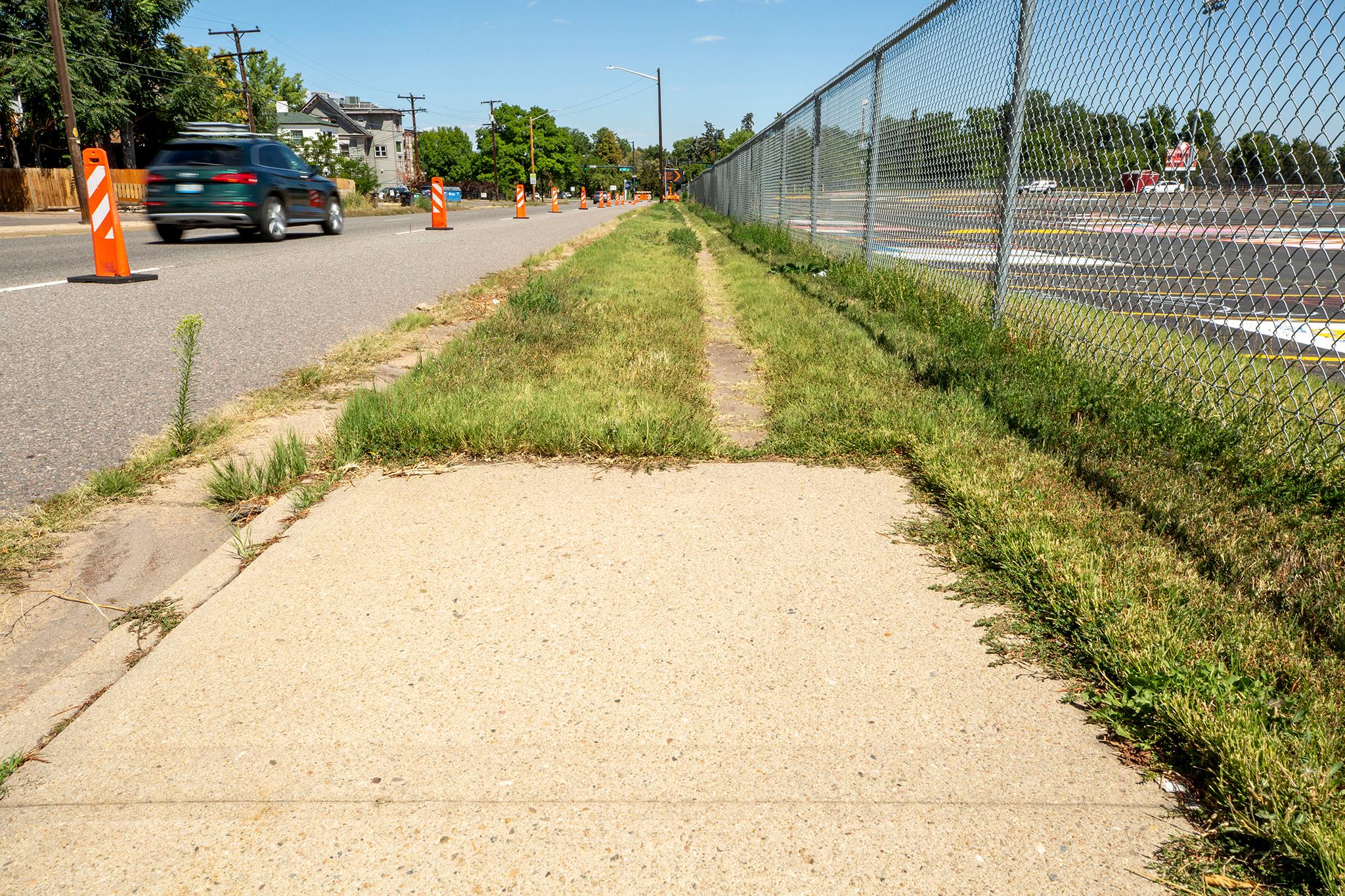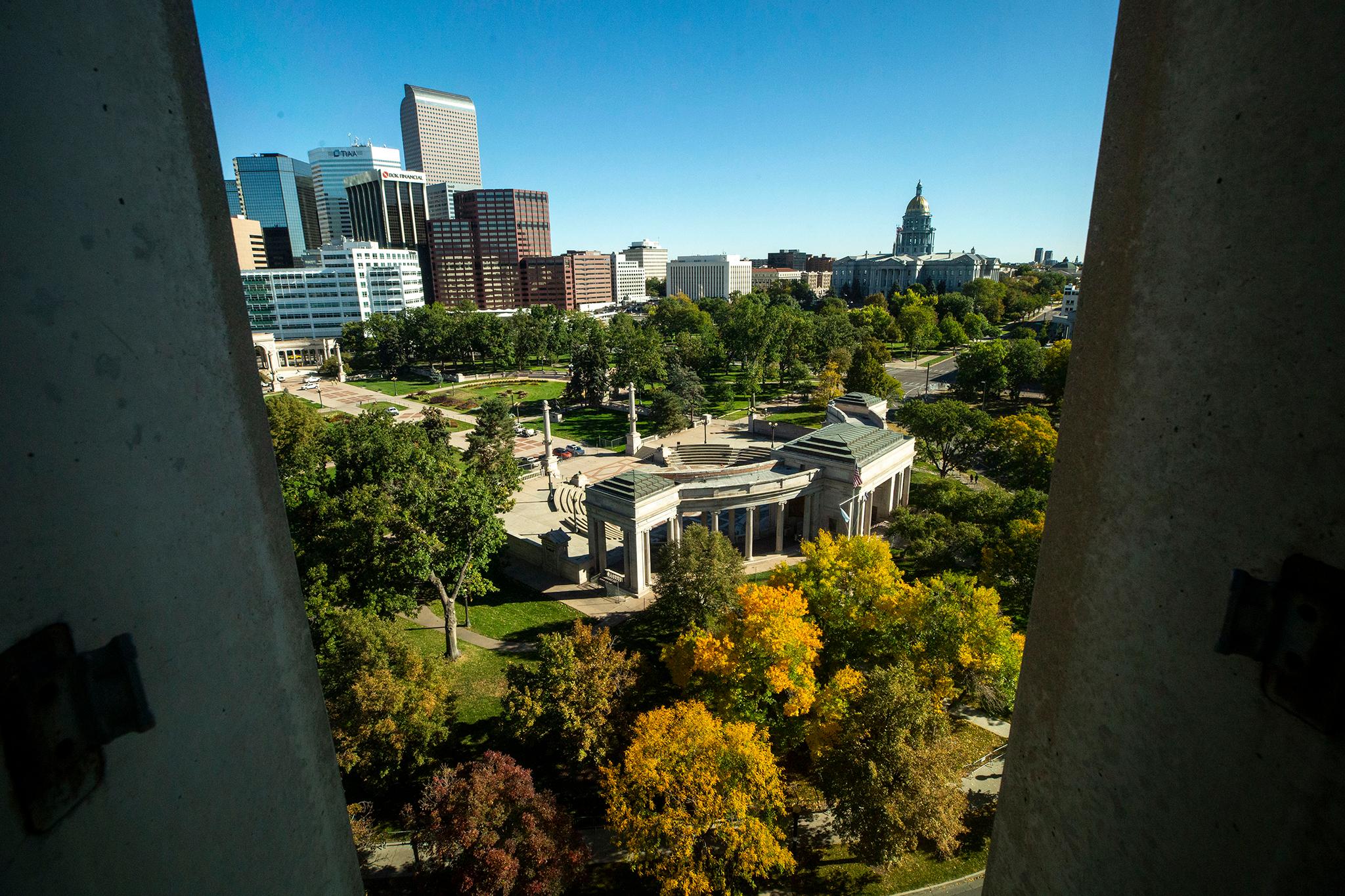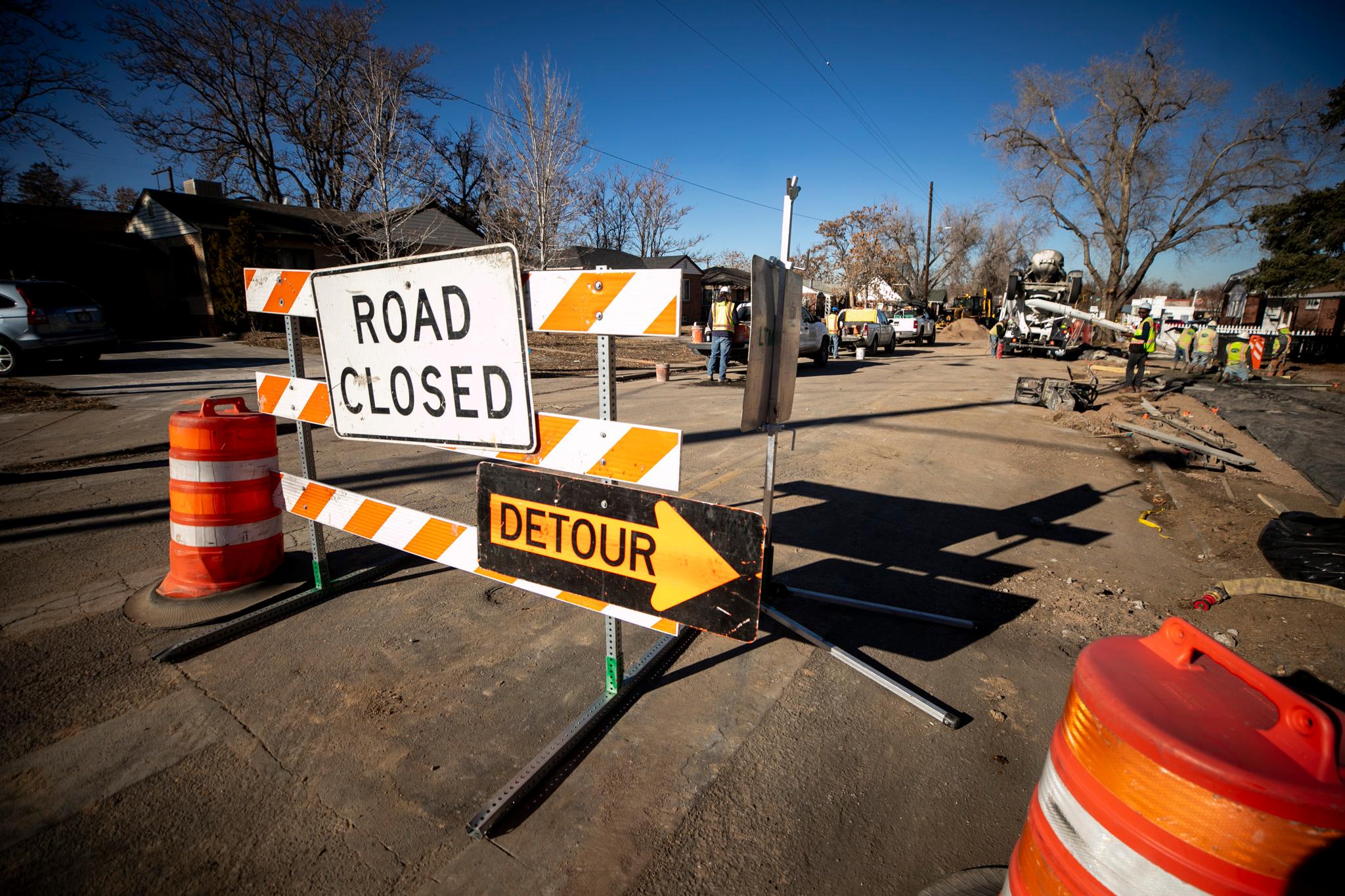Denver's sidewalks can be perfectly smooth walkways, bumpy flagstones, disintegrating concrete, or, sometimes, completely non-existent.
It all depends on where you are, because the city has struggled for years to expeditiously repair and build new sidewalks. One big part of the problem: sidewalks are the responsibility of property owners.
That would change under an initiative on the city's ballot this fall. The "Denver Deserves Sidewalks" initiative would make sidewalks the city's responsibility and levy a new fee on property owners to pay for repairs and new sidewalks.
The initiative would force city officials to make sidewalks a much higher priority than they do now, said Jill Locantore, executive director of the Denver Streets Partnership.
"We've been waiting very patiently to see if the mayor or City Council would take action," Locantore told Denverite in August. "But now the community has taken it into their own hands, gotten it on the ballot, and we'll get to decide once and for all if sidewalks are truly a priority for our city."
Here's the language you'll see on the ballot:
Shall the voters of the City and County of Denver adopt an ordinance to create a sidewalk master plan and to implement a sustainable program for the construction, reconstruction, and ongoing repairs of sidewalks citywide; to fund the program by charging a fee to property owners; to create a sidewalk enterprise within the definition of Section 20, Article X, of the Colorado Constitution, with the authority to issue revenue bonds payable solely from the fees collected under this program and without further voter approval; and to remove the adjacent property owner's current responsibility for sidewalk repair and reconstruction and place such responsibility on the City?
How would it work?
Property owners would be charged by how much of their land faces a street -- and what kind of street it is. Fees would run from $2.15 per linear foot on residential streets to $4.30 per linear foot on busier streets. Locantore said someone who owns a single-family home on a typical 50-foot-wide property would pay about $110 a year. Of course, some lots are much bigger than that -- owners of corner lots in suburban neighborhoods could pay upward of $1,000 every year.
All that fee revenue would add up to about $40 million a year, which Locantore said could be bonded to immediately raise about $850 million and get construction started as soon as possible. She said a city-wide overhaul of sidewalks could be done in just nine years.
A city analysis of the ballot measure (page 32), however, casts doubt on proponents' assumptions. The city said its limited resources and other factors, like limited concrete availability, mean it would take approximately 27.5 years to improve the city's sidewalks.
The city also says the ballot measure will be severely underfunded - it predicts a $2.8 billion shortfall after nine years and $7.3 billion when including right-of-way acquisition costs.
Locantore said the city's analysis is flawed.
The ballot measure would also discount the fees by 20 percent for property owners in lower-income neighborhoods, including East Colfax, Elyria-Swansea, Globeville, Montbello, Northeast Park Hill, Sun Valley, Valverde, Villa Park, West Colfax, and Westwood. Property owners could also defer fee payment until they sell. And the City Council could also adjust the new law, should it pass.
Who's for it?
The Denver Streets Partnership is sponsoring the initiative. Its parent organization, Bicycle Colorado, has made more than $180,000 in in-kind contributions (things like staff time and signature gathering expenses) to the campaign. Locantore has donated $24,000 of her own money, records show. Other large contributions came from Craig Hospital, Conservation Colorado, Healthier Colorado, and YIMBY Denver. The campaign has been endorsed by more than 30 organizations including AAA Colorado, the Denver Classroom Teachers Association, and the Colorado Cross Disability Coalition.
Notably absent, at least so far, are construction industry interests. The Colorado Contractors Association has been a big backer of statewide transportation funding measures in the past. CCA Executive Director Tony Milo said in an email in September that his board has not yet taken a position on initiative.
Who's against it?
There is no organized opposition to this measure. City Councilman Kevin Flynn, who represents southwest Denver, has criticized the proposed fees as being particularly onerous and the initiative as being too aggressive.
"I get the frustration of folks who think that the city is moving too slow with its program. And we are. I get that," Flynn told Denverite in June. "This, I think, may be the opposite end of that spectrum. [It] may be moving too fast and collapse of its own weight."
The Denver Post's editorial board declined to endorse the initiative too, saying the higher fees for some homeowners are "incredibly regressive."













